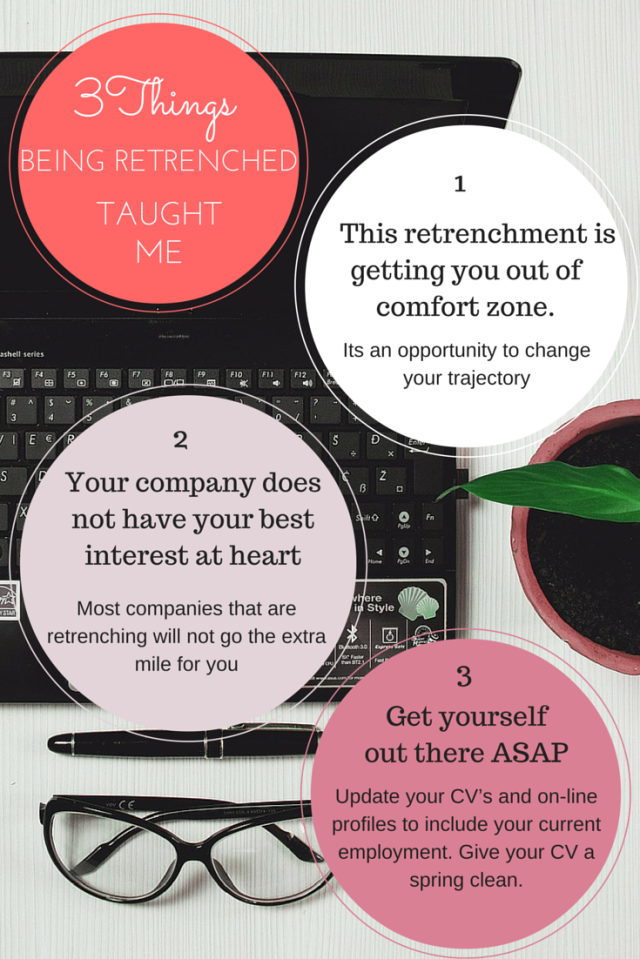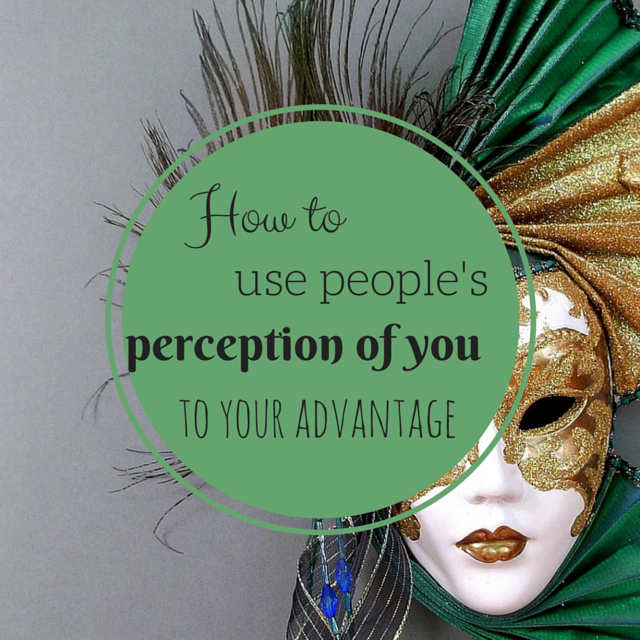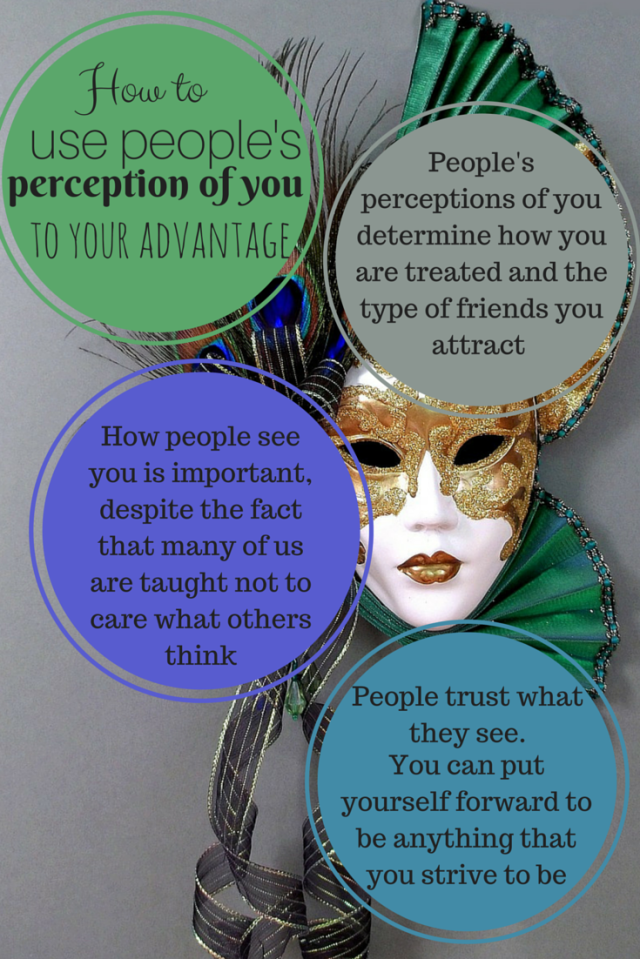So earlier this month I was called into my boss’ office and told that there was “very very bad news”. Our regional branch office (the one I’m employed with) is closing down and that I, along with my other colleague, should start looking for other employment immediately as the office will stop operating on the 31st of January 2015. So at first I thought: “Wow universe, first Monday of the year and you kick me in the face. Thanks.”
Upon sitting down at my desk, after a conversation filled with motivational words with my other half, I looked up at my hand written pink post-it note on my cubicle wall that reads:”Do what you love and the rest will follow”. This post-it was written by me a couple of months ago to remind myself that just because I’m not paid for doing what I love shouldn’t stop me from doing it on my own time. This sentence has led me to start this blog and inspired some changes within myself.
So here is what being retrenched taught me:

1 This retrenchment is getting you out of comfort zone
So looking up that post-it note I mentioned earlier, I told myself: “Myself, if you really believe that practicing what you love will make everything fall into place, now is the time to test it”. Please understand that I loved what I do as Office Manager, even with the little career growth opportunity. In hindsight I would’ve started stagnating (scratching at increases year after year).
Loving what you do and doing what you love are two different concepts, the one calls for you to love your job, the other (doing what you love) is answering your to your vocation. That is what this blog is for. I love sharing experiences,motivating people and perhaps help others learn or think differently about things. I would like to help people see that life is not as complicated as we make it out to be.
Essentially a retrenchment can act as an opportunity to change your trajectory, an opportunity to seek growth, development and a company that values people outside of what they mean to the company (or whatever it is you wish the retrenching company did for you that they didn’t). You’ve lost your anchor, you’re free to explore new things.
So now instead of grabbing at any job that provides a stable income, I invite you to find your fit. Take time to look around and get a job in a field you’d enjoy, even if you thought that you would never succeed by doing what you like or love. Yes, some of us do not have the luxury of being picky but I urge you to look after yourself in the best way you can given the time an opportunities available to you. Move to that country, open that business and apply for that position.
2 Your company does not have your best interest at heart
This is pretty self explanatory but might come as a shock to some. Most companies that are retrenching will not go the extra mile for you. Harsh i know, but no matter how nice your boss is, he will probably not give you more than the bare minimum in terms of notice or severance. The company is in a difficult spot and management has their interest at heart, that is how businesses are (there are exceptions but they are few and far between). Therefore it is very important for you to look out for yourself and stand up for what is yours.
You do this by looking at your employment contract and making sure that the company is acting in accordance to this. Have they adhered to the governing labour law in terms of notice and severance payment? If not, you have to bring it to your immediate superior, HR or IR department’s attention. These contracts and laws are there to protect your best interest so make sure you use them.
Have they formally communicated with you in writing about the reasons for your retrenchment? Do you have a definite date at which your employment expires? You would need this information to start your job search and to claim from salary protection policies. There is a certain process that companies have to follow, these processes are put in place to ensure that your retrenchment is not surrounded with uncertainty and will enable to move on from this job speedily and with the least amount of mess.
3 Get yourself out there ASAP
Whatever your plans are for the future or whether you have no clue where to go, you need to start getting yourself out there before the dust settles. Update your CV’s and on-line profiles to include your current employment. Give your CV a spring clean by taking off irrelevant positions (Like that baby sitting job you had for 6 months in high school. It’s not going to help your case if you’re looking for a career in the banking industry).
Start thinking about issues such as, what salary bracket you fall in now with your extra experience. Maybe you were due to receive an increase soon, had lunch support and a fuel allowance? Add this up so that you know you’re not selling yourself short when you start talking numbers with possible employers.
So now it’s back to the job hunt and swimming in the shark tank with other hungry candidates, awkward interviews and dodgy offices. Yes this is not the optimum situation. What i’d like you take away from this post is you are free to go anywhere, just make sure you look out for you, because it is no one else’s responsibility to make sure that you get the best deal.
Have you been retrenched or fired? What did you learn? Please let me know in the comment section.







